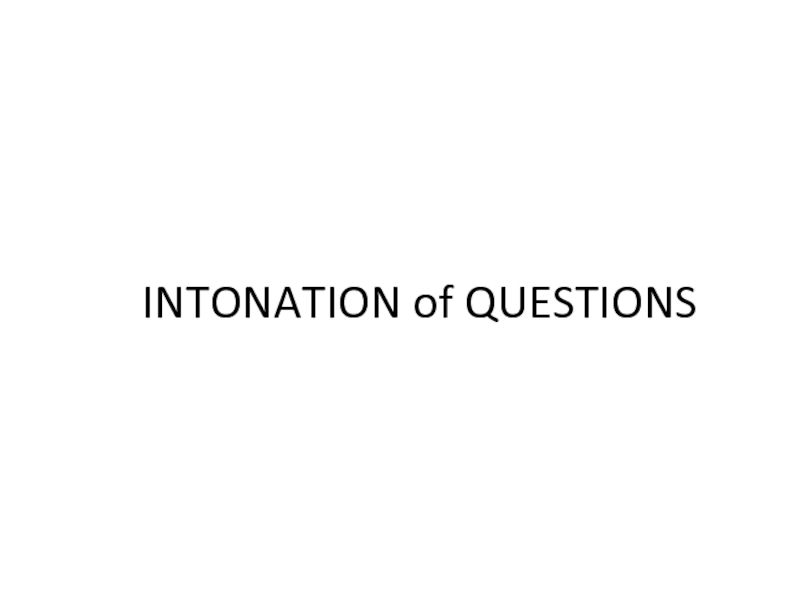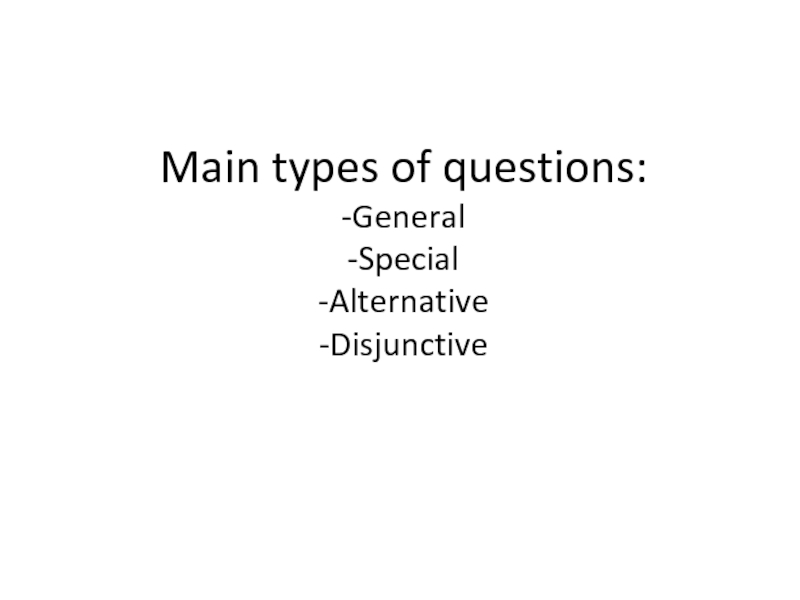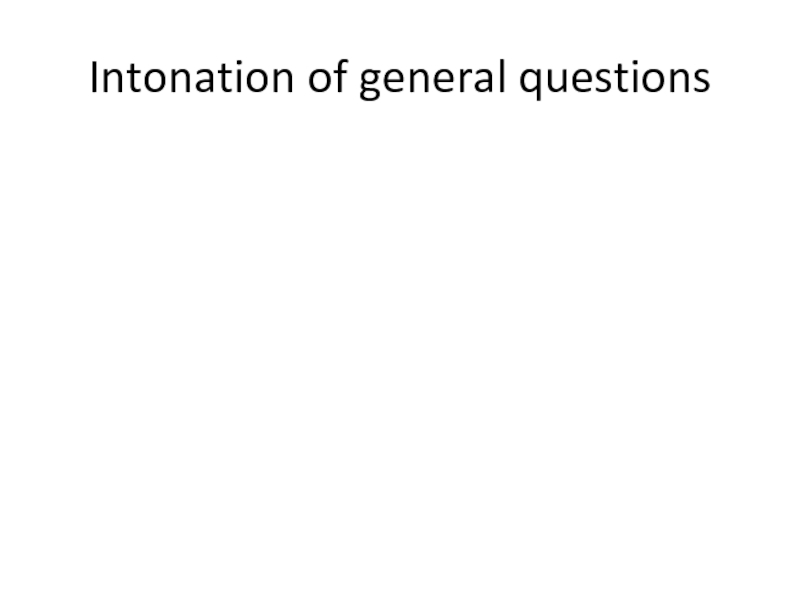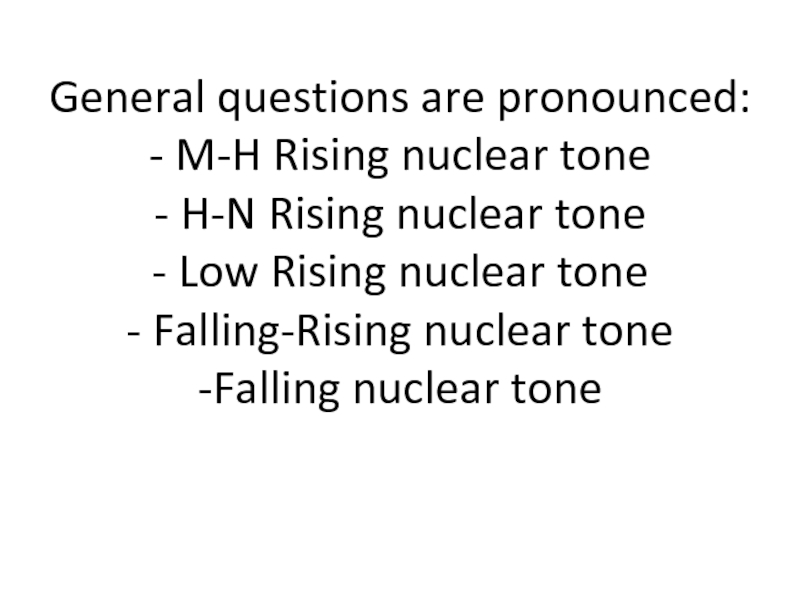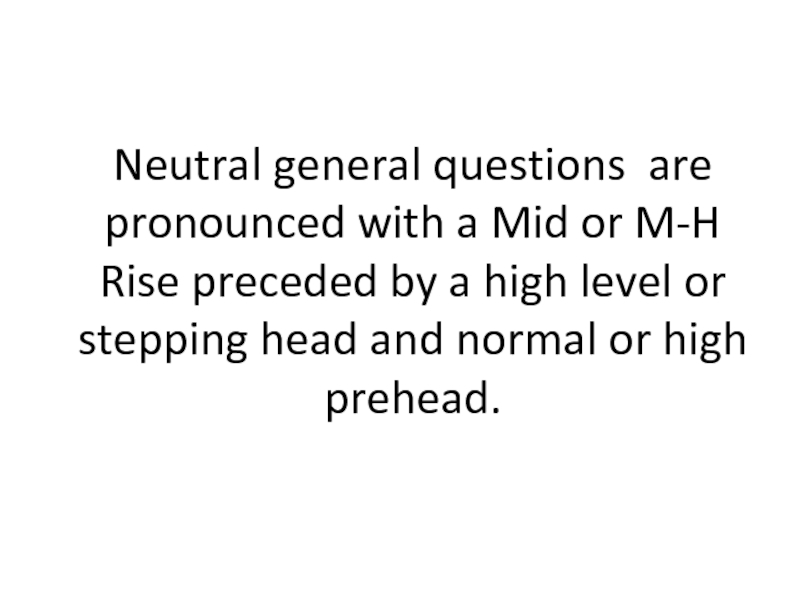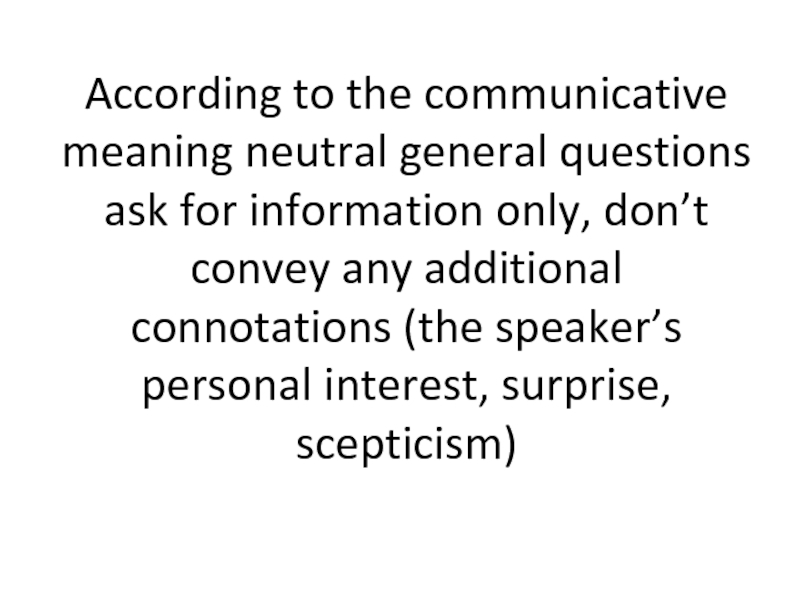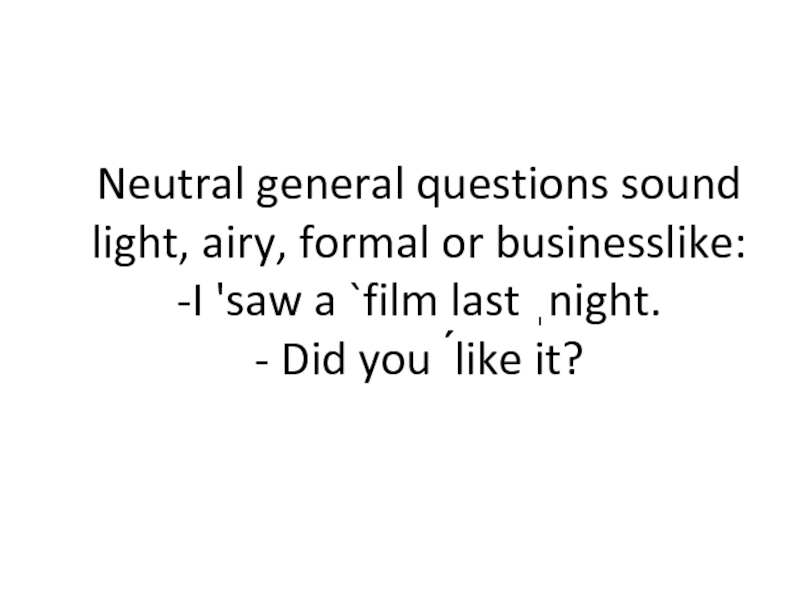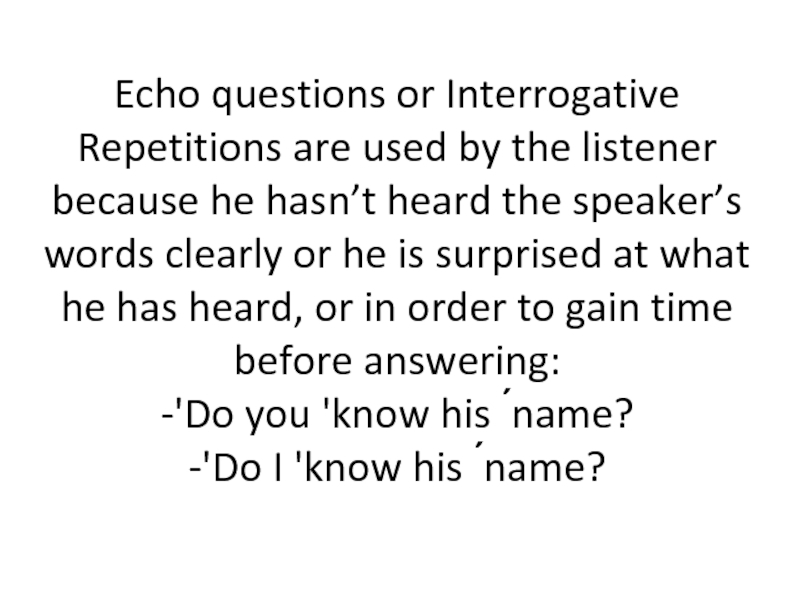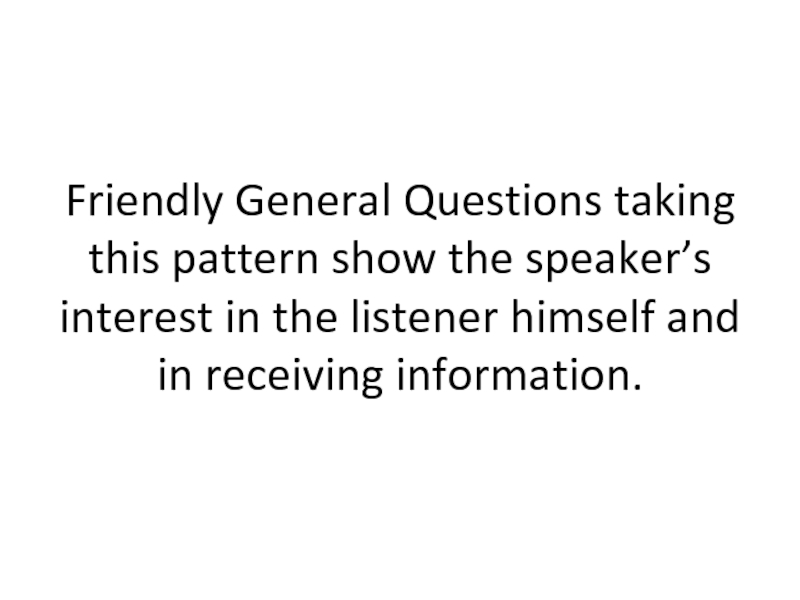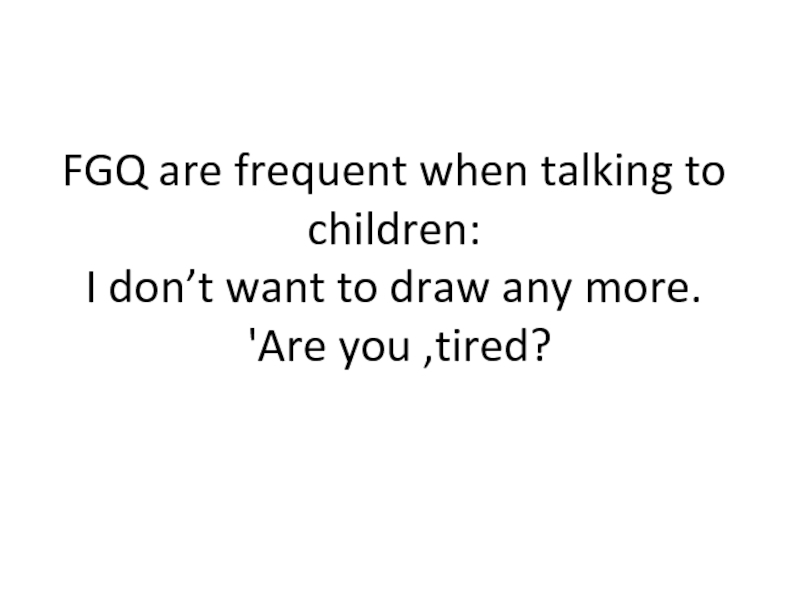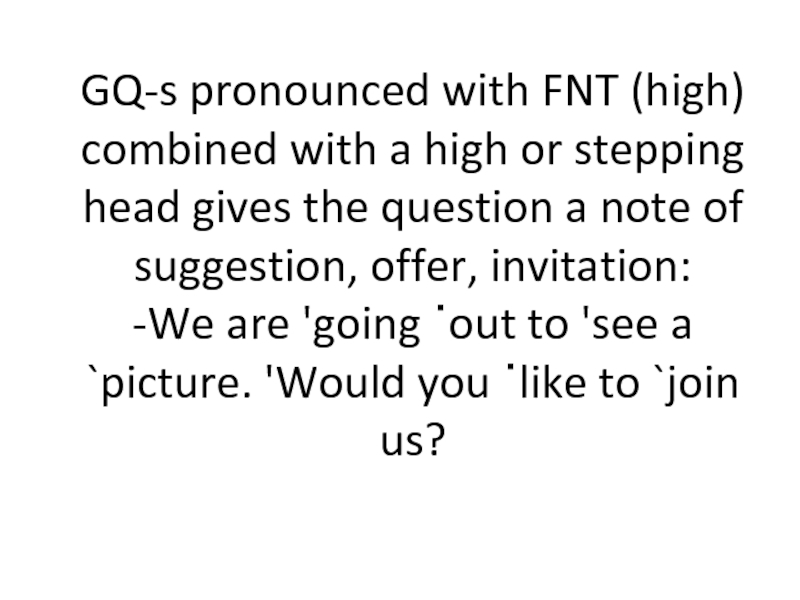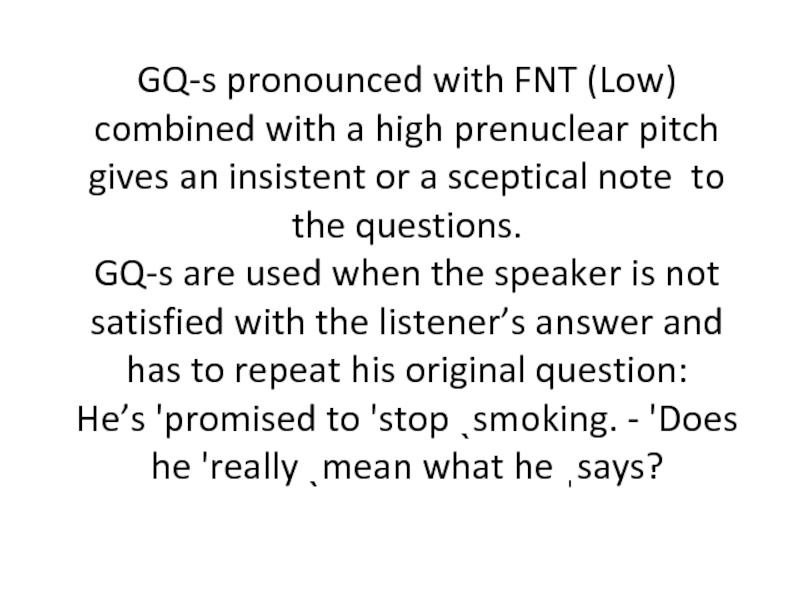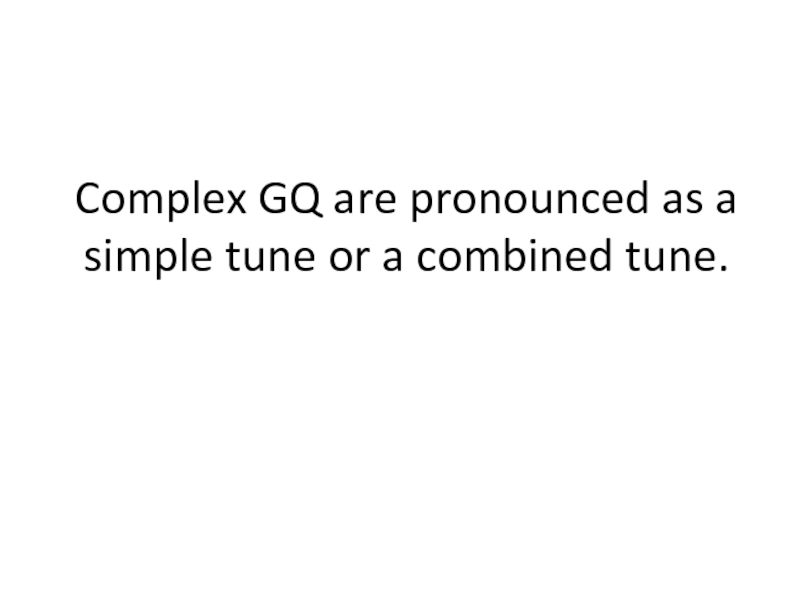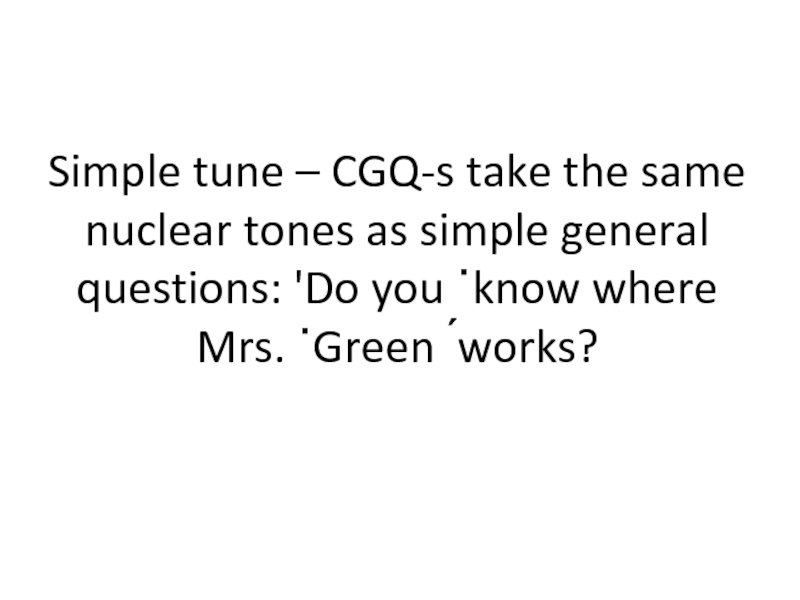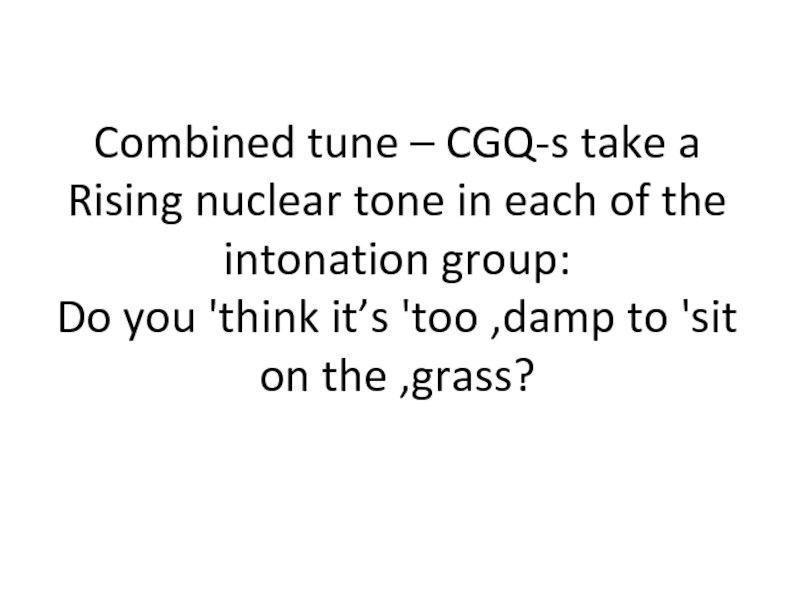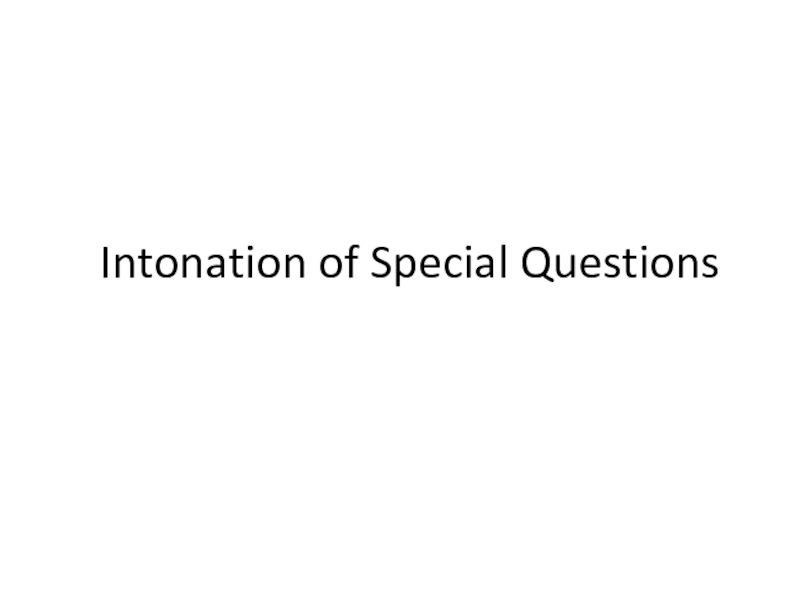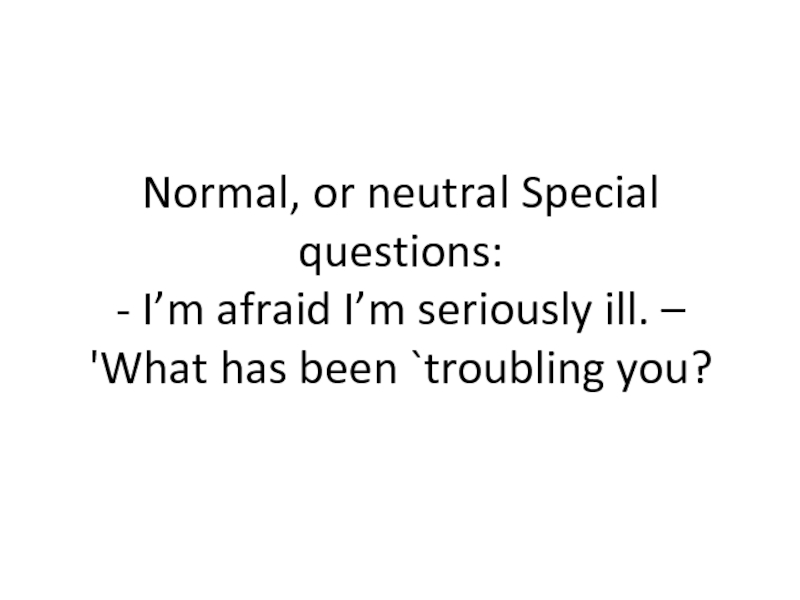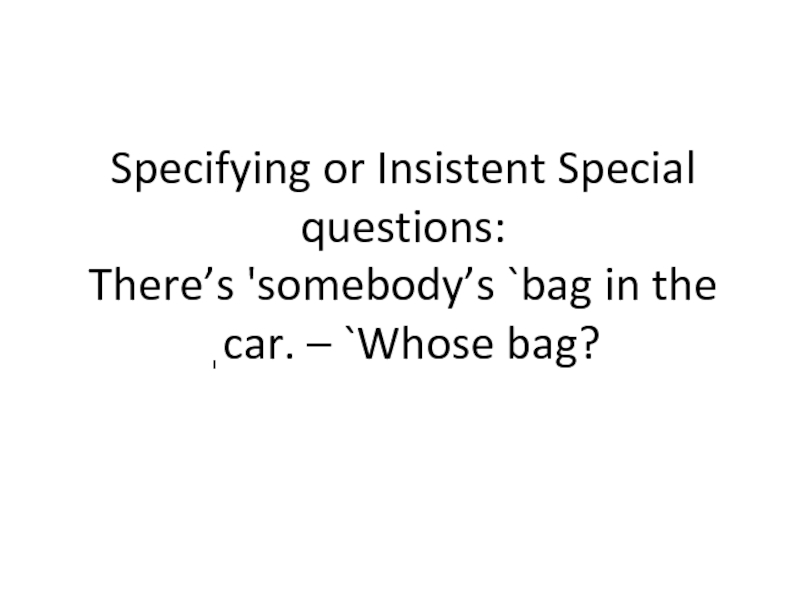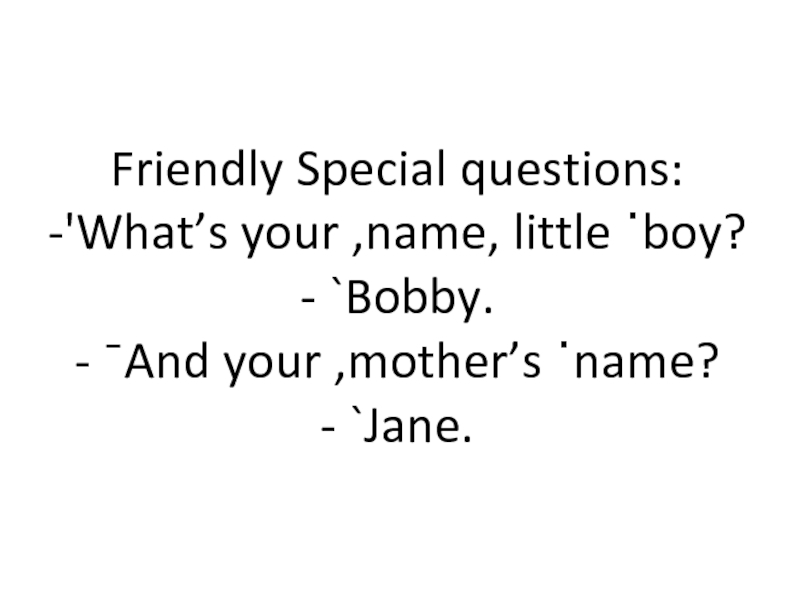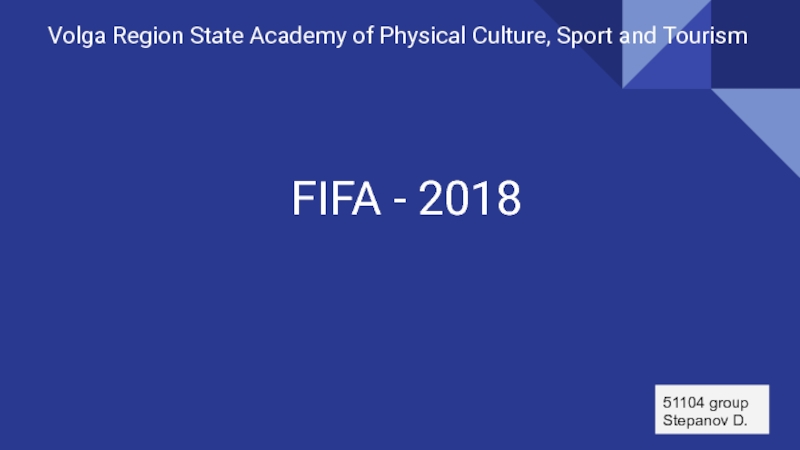- Главная
- Разное
- Дизайн
- Бизнес и предпринимательство
- Аналитика
- Образование
- Развлечения
- Красота и здоровье
- Финансы
- Государство
- Путешествия
- Спорт
- Недвижимость
- Армия
- Графика
- Культурология
- Еда и кулинария
- Лингвистика
- Английский язык
- Астрономия
- Алгебра
- Биология
- География
- Детские презентации
- Информатика
- История
- Литература
- Маркетинг
- Математика
- Медицина
- Менеджмент
- Музыка
- МХК
- Немецкий язык
- ОБЖ
- Обществознание
- Окружающий мир
- Педагогика
- Русский язык
- Технология
- Физика
- Философия
- Химия
- Шаблоны, картинки для презентаций
- Экология
- Экономика
- Юриспруденция
Intonation of questions презентация
Содержание
- 1. Intonation of questions
- 2. Main types of questions: -General -Special -Alternative -Disjunctive
- 3. Intonation of general questions
- 4. General questions are pronounced: - M-H Rising
- 5. Neutral general questions are pronounced with a
- 6. According to the communicative meaning neutral general
- 7. Neutral general questions sound light, airy, formal
- 8. Echo questions or Interrogative Repetitions are pronounced with a High Narrow Rise.
- 9. Echo questions or Interrogative Repetitions are used
- 10. Friendly General Questions are pronounced with a
- 11. Friendly General Questions taking this pattern show
- 12. FGQ are frequent when talking to children:
- 13. GQ-s pronounced with FNT (high) combined with
- 14. GQ-s pronounced with FNT (Low) combined with
- 15. Complex General Questions
- 16. Complex GQ are pronounced as a simple tune or a combined tune.
- 17. Simple tune – CGQ-s take the same
- 18. Combined tune – CGQ-s take a Rising
- 19. Intonation of Special Questions
- 20. The common intonation patterns: - FNT (High,
- 21. Normal, or neutral Special questions: - I’m
- 22. Specifying or Insistent Special questions: There’s 'somebody’s `bag in the ˌcar. – `Whose bag?
- 23. Friendly Special questions: -'What’s your ,name, little
Слайд 4General questions are pronounced: - M-H Rising nuclear tone - H-N Rising nuclear
tone
- Low Rising nuclear tone
- Falling-Rising nuclear tone
-Falling nuclear tone
Слайд 5Neutral general questions are pronounced with a Mid or M-H Rise
preceded by a high level or stepping head and normal or high prehead.
Слайд 6According to the communicative meaning neutral general questions ask for information
only, don’t convey any additional connotations (the speaker’s personal interest, surprise, scepticism)
Слайд 7Neutral general questions sound light, airy, formal or businesslike: -I 'saw a
`film last ˌnight.
- Did you ́like it?
Слайд 9Echo questions or Interrogative Repetitions are used by the listener because
he hasn’t heard the speaker’s words clearly or he is surprised at what he has heard, or in order to gain time before answering:
-'Do you 'know his ́name?
-'Do I 'know his ́name?
Слайд 10Friendly General Questions are pronounced with a L-R Nuclear Tone or
F-R Tone preceded by a high-pitched prenuclear part.
Слайд 11Friendly General Questions taking this pattern show the speaker’s interest in
the listener himself and in receiving information.
Слайд 13GQ-s pronounced with FNT (high) combined with a high or stepping
head gives the question a note of suggestion, offer, invitation:
-We are 'going ˙out to 'see a `picture. 'Would you ˙like to `join us?
Слайд 14GQ-s pronounced with FNT (Low) combined with a high prenuclear pitch
gives an insistent or a sceptical note to the questions.
GQ-s are used when the speaker is not satisfied with the listener’s answer and has to repeat his original question:
He’s 'promised to 'stop ˎsmoking. - 'Does he 'really ˎmean what he ˌsays?
Слайд 17Simple tune – CGQ-s take the same nuclear tones as simple
general questions: 'Do you ˙know where Mrs. ˙Green ́works?
Слайд 18Combined tune – CGQ-s take a Rising nuclear tone in each
of the intonation group:
Do you 'think it’s 'too ,damp to 'sit on the ,grass?
Слайд 20The common intonation patterns: - FNT (High, Mid, Low) with a normal
or high prehead and a high or stepping head (Normal, or neutral Special questions, Specifying or Insistent Special questions);
- RNT (Low) with a high-pitched prenuclear part (Friendly Special questions).
Слайд 21Normal, or neutral Special questions: - I’m afraid I’m seriously ill. –
'What has been `troubling you?
Слайд 22Specifying or Insistent Special questions: There’s 'somebody’s `bag in the ˌcar. –
`Whose bag?
Слайд 23Friendly Special questions: -'What’s your ,name, little ˙boy? - `Bobby. - ¯And your
,mother’s ˙name?
- `Jane.
